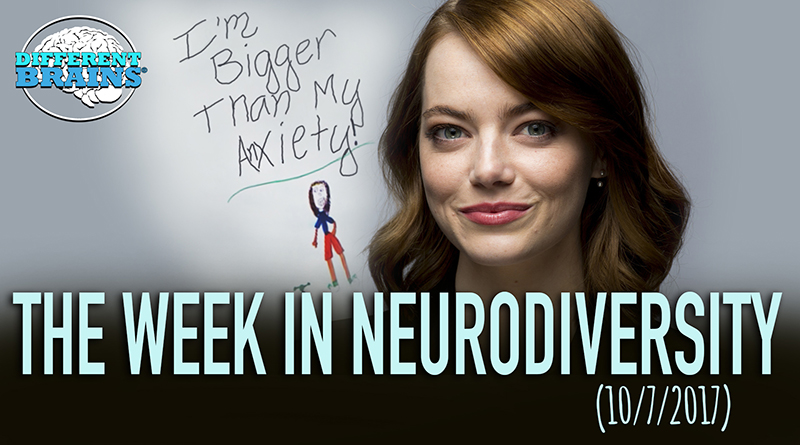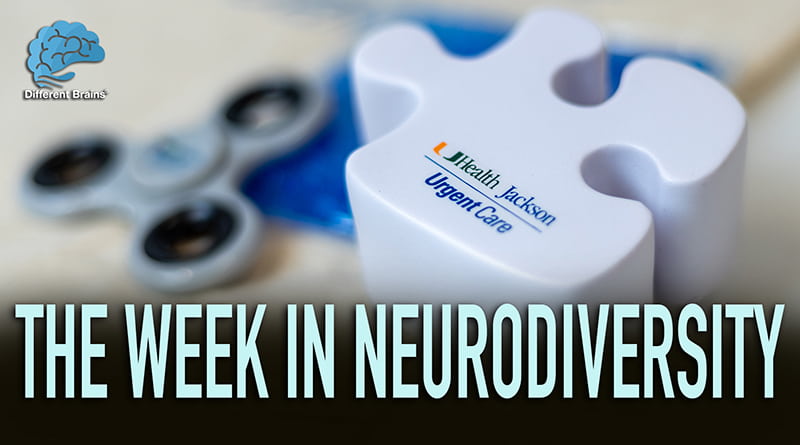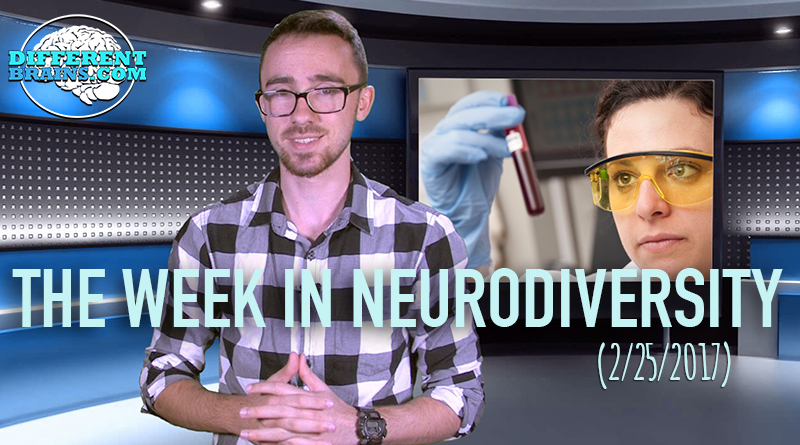Finding the Super Powers Within w/ Dr. April Lisbon | Ep. 9: Dr. Shawn Anthony Robinson

(14 minutes) Dr. April Lisbon believes the differences in our brains can really be our super powers. In this episode, she speaks with self-advocate Dr. Shawn Anthony Robinson. Shawn shares his journey with dyslexia, and why he created Doctor Dyslexia Dude.
For more about Dr. Lisbon visit:
For more about Dr. Robinson:
TRANSCRIPTION:
DR APRIL LISBON (AL): Hello, everyone. Thank you so much for joining us on another amazing episode of finding the superpowers within. I am your host, Dr. J Lisbon, your workplace autism advocate. I am super excited today to have today’s guests. I have known Dr. Shawn Anthony Robison for almost six years now. And I will tell you that not only is he a brilliant scholar, he’s a brilliant advocate brilliant has been brilliant father, there’s so much I can tell you about Shawn. But I will let Shawn introduce himself just a little bit, and share with you who he is and what he’s all about. So ladies and gentlemen, please listen up, get your get your videos together. And let’s welcome Dr. Shawn Anthony Robinson. Sean, how are you today?
DR SHAWN ANTHONY ROBINSON (SR): I’m good. Thank you for having me on here. Appreciate it.
AL: Yes. Thank you so much for joining in. So as I said before, in my intro, can you share with my listening and my viewing audience a little bit about who you are and the work that you do?
SR: Uh, yes. So I’m a big advocate in the space of dyslexia, or, particularly kids with learning disabilities, my journey and life experiences have kind of molded me into who I am today, given the fact that I have dyslexia, and wasn’t diagnosed until I was 18. And graduated high school Ria at an elementary level. So I think all my experiences, God, you know, willing, have prepared me for this work of being an advocate. More importantly, you know, a husband, a father, you know, community member. And so even as a researcher, in terms of the work I do, within the Academy, had to think about how to reach communities and families, we’re not reading journal articles, or book chapters that are mostly for people in the academy. So that is where you know, the whole theme of the kid book that my wife and I wrote, Dr. Dyslexia Dude. And so I think, just going back to my own childhood experiences, I wish I would have had books that were culturally relevant to me as a young African American boy, but particularly a young boy who had a learning disability, that I could relate and see something that was powerful within the context of a of a kid’s book. And so, again, I don’t want to ramble on I just think that my experiences have really shaped who I am today.
AL: Shawn you mentioned something very interesting to me, you indicated that you were not diagnosed to age 18. So that’s like, right around high school, graduate. Yes. Post a little bit about your educational experience, and why did it take so long for you to be diagnosed at the age of 18?
SR: You know, I can’t say you know, why I can make, you know, hypothesis or assumptions. But I was especially pretty much away from pre k all the way up to high school, went to an alternative high school for two years, I got kicked out of the regular high school because I could control my my anger. But I have some beautiful teachers, I I thank God every day for these teachers I had that really helped me see my own power within me. But the whole learning aspect, particularly reading was never caught. I just kind of got funneled through the system, which we see today without of kids who get pushed through who graduate but are really not reading at grade level when they get out. And so what do you have to live for when you are 18 you get out into the world, you know where you’re at to navigate a system that’s fuller print, you know, everything we do is print reread, we write we speak and if you struggle with those areas, you’re gonna have a hard time. And so I was fortunate enough to have a professor that saw my talent, and my mom found in he diagnosed me and said that that was one of the most illiterate kids he’s ever seen and said, it wasn’t my fault that the system had failed me. And it wasn’t my what it was okay to feel the way I felt, and that he was going to help me but it was going to take a lot of work. So he accepted me into his remedial college program in two weeks after I graduated high school. I was off to college and I never stopped school. So I went school pretty much 18 years straight after high school.
AL: Wow, that is such a testimony such it’s such a story of hope. It’s such a story of perseverance, determination out exactly. You know what goes beyond just the IEP, you know, So thank you so much for sharing your your truth with us. So you shared a little bit about your school journey. Tell us a little bit about how you dyslexia manifests itself at work?
SR: Well, I think everyone, you know, has different ways of coping. I also think that people have different strengths and weaknesses. And so I try not to give advice of how somebody else would should experience or what they should do. For myself. I always found job coaches, I guess, or mentors, that helped me kind of navigate spaces that were not my strength. You know, particularly when I first started off, doing like, writing, you know, emails, like, my writing was awful. So I had people look at it before I sent it off to make sure that it was correct. And, you know, so I just think that beyond the workforce, some things can seem terrifying for people I know, for myself, when I first started off, but then as I found life coaches, job coaches, mentors who, you know, built confidence me, then those areas that I seem to be fearful of became a blessing to me. And then I realized that it was a way to tackle it and turn it into a strength versus looking at as a weakness.
AL: That’s great. Thank you so much for sharing that information. So as a discipline a little bit lighter, can you tell us one or two things you would tell your younger self, about this journey that you’ve been on over the years?
SR: Um, I think endurance, you know, never never giving up. That the road’s never going to be straight. So it’s going to be some sort of trials and tribulations and that sometimes it’s going to be a dark and lonely place, but you just got to, you know, keep believing yourself, like the little train choo, choo, you know, choo, choo, you know, so I just think it’s just a comes down to a mentality of really understanding that you can do it, versus people telling you what you can’t do. I think, you know, for myself being younger, looking back, there are people who would tell me, I can’t do it. And so I think that played an impact of how I saw myself and how I took things on. I took it from a point where I didn’t believe I could do it, because I heard it so many times that I became, you know, I lived it, I walked it. But then once people start telling me I could do it, and I learned to read. I just became a sponge. So I just think, you know, to even tell like my, my two boys or kids I work with, you know, you just got to keep believing yourself. You got to just keep working hard. You got to dig deep, you got to always have hope, you know, and durance you know, and so, life has never been easy, but you just got to keep working hard. Hope that was helpful.
AL: Yes, very helpful, because now it’s getting ready. As an amazing segue to my next question. We when you think about you know — I’ll call it manifesting in speaking affirmations into any child, but especially a child with dyslexia, How can parents support their child, how can they we affirm them, regardless of what is being said, you know, the negative words that they may hear How can parents, um, you know, kind of sort of like flip the script to support their child?
SR: I want to think that you know, anything in life, you know, when you have a garden or you have flowers, you got nurture, right, you got to be patient with it takes time to grow. I think a lot of times for myself speaking sometimes, you know, I might lose a little patience. And that’s just human nature. Like that’s just part of life. And so I think having been in a situation I think patience and love are probably the two biggest factors because we don’t know when that likes to click for our child we don’t know when they’re gonna you know, had the aha moment and you know, just take off and start soar like an eagle. We don’t know it could be three days could be five days to be a month could be years. So I just think patience and love and just encouraging them to keep keep doing it, regardless of you know, how they feel. And really, some celebrate small milestones. So you know, if if they made a small accomplishment, celebrate it, because it’s, you know, every milestone will get you to the end goal.
AL: Absolutely. So on the flip side, another flip side this, these two are two new questions that I’ve recently started asking my millennials and Gen Z’s because as I tell people, I truly believe that you guys are the change agents that’s going to really revamp and revise how we see the workforce, how we see education, how we see change as we know it. So for you, and this is specifically for you, what types of accommodations can your employer provide you in order for you to be successful on the job, as well as talking to colleagues support you on the job?
SR: I think for like, for writing purposes, because I’m trying to think of like, different situations — scenarios. And so this question has really got me (Laughs) I think, for me for writing would be the one is really, my thoughts that are coming into my head, are not always reflected on the paper. And so sometimes I have to pass me look over that before I send it out, you know, and but I don’t always use people within the space I work at, because I don’t know if people will judge me for it. So I always use something outside of my space, because I feel more comfortable than ask somebody within my space. Because within my space, you’ll know what kind of, you know, judgmental attitudes will have for me, they might think that I’m less than, or I’m not, you know, competent in, in certain areas. So I always like to go outside of my space, so I can, you know, get the services or support that I need versus internally that makes sense.
AL: It makes a lot of sense. And I think once again, that goes back to, you know, how we accept and embrace individuals with unique learning needs, and how are we actually providing accommodations appropriately to support the needs of individuals, you know, a lot of that should be done in house. But because we still have these signals as related to unique learners with disabilities, it can become challenging to want to get support, and how so I understand that totally. And I’m hoping you know, that more of our disability advocates and our disability attorneys, you know, listen to what you just shared, so that we can become more vocal about this, because I’m sure you’re not the only person that is experiencing this, or we feel this way. And we really need to start embracing the people who we hire their unique skills, you know, everything that they bring to the table while still providing them with the appropriate accommodations.
SR: Yes.
AL: I always tell people, you know, once a student graduates from high school or complete school, the ability doesn’t go away. It’s still there. You know, and those accommodations are lifelong accommodations. And we have to say, politically correct. We have to get off our butts. And do what’s right by people. That’s just what we have to do.
SR: Yes, that’s true.
AL: So thank you so much for that. So I last question, because I heard the babies that I love. (Laughs) So the last question is this. Where do you see yourself three to six months from now, after doing this interview?
SR: Doing the work that needs to be done advocacy work, my wife and I are gonna start working on books three, and four for Dr. Dyslexia Dude. I’m working on some other things in reference to it. So I just want to try to get my work more mainstream, you know for students with dyslexia, I don’t know what it looks like or what timeframe, you know, but I just know that something bigs coming so I just gotta be patient.
AL: I love it. And so if people wanted to connect with you via social media, or learn more about Dr. dyslexia, how can they connect with you?
SR: They just go to our website, drdyslexiadude.com. Or they can go to our Instagram account was just @DrDyslexiaDude. And they can learn, you know about the book and about what we’re doing.
AL: Wonderful. So Dr. Shawn Anthony Robinson, I want to tell you, thank you so much for joining me today. The information that you have shared I know benefits, not only individuals with dyslexia, but also individuals who are advocates, individuals who are allies, but individuals who just want to know more about how to support the needs of individuals with dyslexia. Once again, ladies and gentlemen, I am your host, Dr. April J. Lisbon, and this has been another amazing episode of finding the superpowers within. I look forward to seeing you on the next episode. Have a great and wonderful day.




